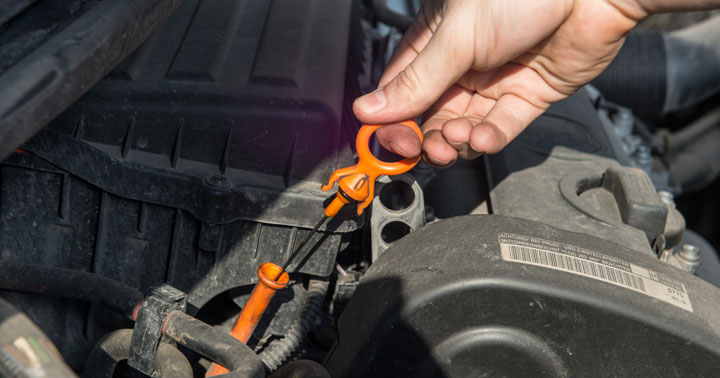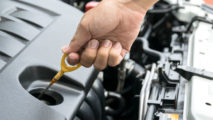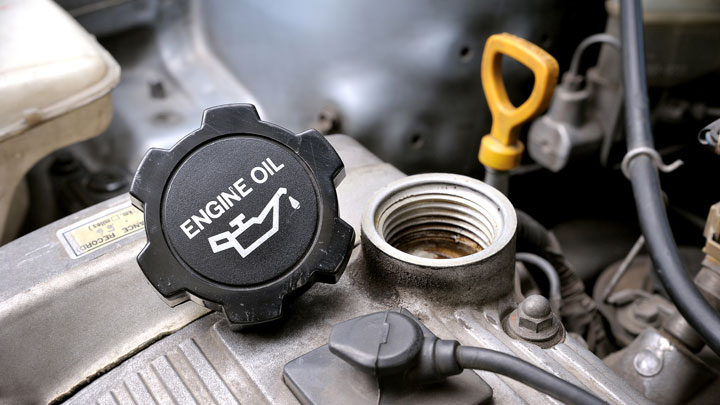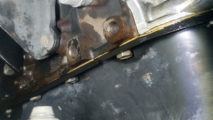Last Updated on October 3, 2022
A car engine is lubricated by its oil. As time goes on, much of that oil will burn away or possibly leak out. This means you’ll have to put additional oil into the engine and repair any leaky areas.
Changing the oil is one of the most basic forms of car maintenance that people perform. Those who don’t change their engine oil regularly will see the level of its decline.
Related: Too Much Oil in Your Engine? (Here’s What Can Happen)
Top 3 Low Engine Oil Symptoms
#1 – Oil Pressure Light
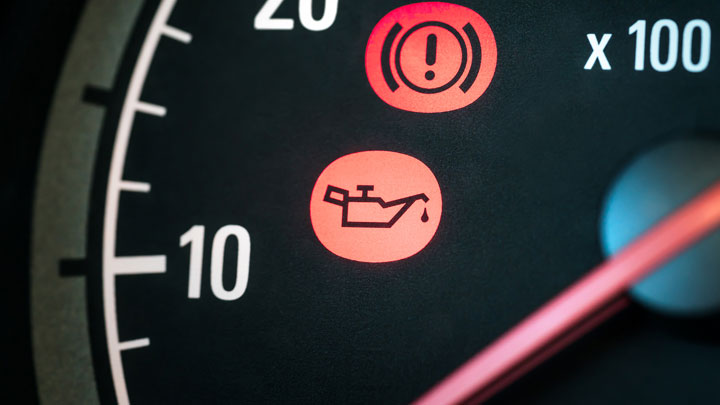
The simplest indicator of a low oil level is when the oil pressure warning light on the dashboard illuminates. There is a sensor which can sense when your vehicle’s oil pressure is too low. This sensor is connected to the warning light on the dashboard.
So, when the sensor detects low oil pressure, it automatically activates the warning light. If this happens to you, be sure to top off your oil level and then take your car to a repair shop or dealership if you find your oil level dropping again. They will need to find and fix any leaks that may exist.
See Also: 4 Common Oil Change Scams
#2 – Smell of Burning Oil
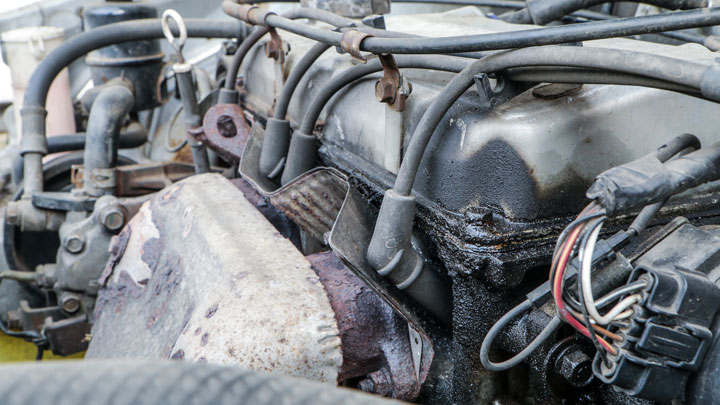
If the interior of your car starts to have a burning smell, particularly the smell of burnt oil, then pull your car off the road and immediately turn your engine off. This burning smell could be from an oil leak onto the hot components of your engine.
If you have a dipstick, use it to check your oil level. If it shows that your oil is lower than the minimum level, you should avoid driving it until you top off with fresh motor oil. Failure to ignore this warning can cause expensive engine damage.
Once you bring the oil level up to the recommended amount, be sure to monitor for leaks. If the oil level continues to slowly drop, have a mechanic check it out. It could be as simple as a leaking valve cover gasket or something more severe like a rear main seal leak.
#3 – Knocking Sounds

This symptom should only occur if you’ve neglected to do anything about the burning smell or warning light symptoms that were just mentioned.
If you continue to drive your vehicle even though it has a low level of oil, a knocking sound will be the final symptom before your engine completely seizes up.
The reason is because there is less oil to lubricate the engine parts. This will cause your engine’s rods to loosen as more friction develops. These rods are responsible for securing the pistons of the vehicle.
If these rods were to get too loose and break down, then you will be “throwing a rod.” As the rods are being thrown, the knocking noise will be heard coming from underneath the hood. After just a couple of hundred yards, the engine will halt and the rods will be thrown.
Remember that engine oil is more than just a lubricant for the engine’s parts. Oil also cleans and cools the engine too.

